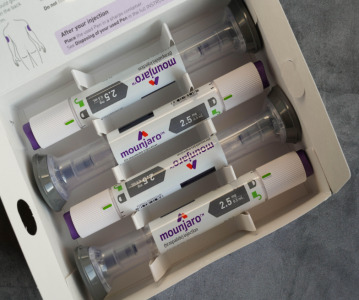Pharmaceutical Industry ‘Not Ready’ to Manage XEVMPD Requirements According to New ProductLife Group Research

Many firms in the European pharmaceutical industry are not yet ready for the latest requirements of the eXtended EudraVigilance Medicinal Product Dictionary (XEVMPD) mandate, according to new research from life sciences outsourcing and consulting services specialist ProductLife Group.
The research took place at a roundtable designed to better understand the pharmaceutical industry’s readiness to manage the latest requirements of the XEVMPD mandate, with more than two-thirds of respondents (68%) admitting they have either not started the process of preparing for the XEVMPD, or are only in the early stages of addressing requirements.
The main reason given for this lack of preparation was resources, with 59% of respondents saying that lacked the resource to meet the XEVMPD deadline, with few regulatory and safety leaders having the time to carefully study the extensive information contained in the European Medicines Agency’s (EMA’s) guidance.
“While we can all relate to a lack of resource, firms simply have to find a way of meeting the XEVMPD deadline — it is non-negotiable and the consequences of not doing so are far-reaching,” said Erick Gaussens, chief scientific officer, ProductLife Group. “While the processes around updating the XEVMPD data are fairly straightforward, the problem with maintaining the XEVMPD data is that the processes involved aren’t isolated, yet the data they manipulate can be stored in different systems and used by different people. This needs to be understood and managed.”
The XEVMPD requirements constitute a major change in European drug law, with firms required to provide detailed structured data for all human medicinal products authorised in EU/EEA to the XEVMPD. Data required includes detailed information on administrative, product-related and substance-related data.
The role of local affiliate companies in managing XEVMPD requirements were also sources of great concern for research respondents. Thirty-two percent identified lack of local affiliate awareness, while 46% identified limited affiliate resource capacity to process XEVMPD submissions as a significant challenge. With regard to data management, concerns ranged from different naming conventions in each country (32%) to information in local SmPCs not being up-to-date or made available to the central headquarters organisation (18%).
A majority of respondents (59%) are choosing the EVWeb to submit data, as opposed to just 23% using the Gateway. A further 14% are unsure while 4% will use a customised or in-house solution that uses the EV POST.
“The fact that 14% of respondents do not yet know which solution they will use to submit data to the XEVMPD, is worrying to say the least,” said Andrew Marr, PhD, Managing Director, Marr Consultancy and chair of the roundtable. “People aren’t sure which foot to put forward in moving their companies ahead with the XEVMPD but it’s a decision that needs to be made sooner rather than later.”
ProductLife Group (PLG) engaged with more than 20 regulatory affairs and safety leaders to pose a series of key questions, with responses coming solely from people with responsibility for managing the XEVMPD in companies across Europe. A select group of regulatory and pharmacovigilance heads were then brought together for a roundtable debate on the research, with discussion led by XEVMPD expert Andrew Marr; PLG’s chief scientific officer Erick Gaussens; and Philippe Banes, PLG’s head of regulatory operations.
Related News
-
News The next 15 drugs up for negotiation with Medicare include several blockbusters
By now, everyone is quite familiar with the drug price negotiations taking place between drug companies and the Centres for Medicare & Medicaid Services (CMS) in the USA as part of measures being taken to reduce the cost of drugs for patients, to make ... -
News PSCI Welcomes Delpharm, Samsung Biologics, and Suven as First Supplier Partners
The pharmaceutical industry continues to evolve with an increasing focus on responsible sourcing, sustainability, and collaboration across the supply chain. Under a new model to recognise suppliers within the pharmaceutical and healthcare industry that... -
News Drug prices agreed upon as part of the US Inflation Reduction Act
The Inflation Reduction Act brought into constitution by the Biden administation in 2022, which proposed a drug price negotiation between the government and pharmaceutical companies, has reached it's first agreement. -
News Eisai Alzheimer’s drug authorised in UK but still faces obstacles
In partnership with BioArctic AB, pharmaceutical company Eisai has been granted Marketing Authorisation by the Medicines and Healthcare products Regulatory Agency (MHRA) for its Alzheimer’s disease drug product Leqembi. -
News Eli Lilly's weight loss drugs removed from the FDA's shortage list
The US FDA have recently updated their drug shortage list. The recently released list shows that all dosage forms of Eli Lilly's weight-loss drug Zepbound and their diabetes drug Mounjaro are now available. -
News Global advancements in the diagnosis and treatment of rare diseases: Rare Disease Day 2024
Rare Diseases Day is celebrated on the 29th February 2024 and represents the plight of rare disease patients to gain diagnosis and access to suitable treatment. -
News Pharmaceutical industry supports COP28 health stance in joint statement
As COP28 takes place over this week in Dubai, UAE, several bodies in the pharmaceutical and health industries have come together to announce support of key movements in sustainability in the sector, and to recognise sustainability as a health issue.&nb... -
News Biden backs Cold-War measures to shore-up medical supply chains
In a recent strategy to combat rising inflation and the cost of living crisis, President Joe Biden has invoked a Cold War-era act to increase investment in a selection of medicines and supplies.
Recently Visited
Position your company at the heart of the global Pharma industry with a CPHI Online membership
-
Your products and solutions visible to thousands of visitors within the largest Pharma marketplace
-
Generate high-quality, engaged leads for your business, all year round
-
Promote your business as the industry’s thought-leader by hosting your reports, brochures and videos within your profile
-
Your company’s profile boosted at all participating CPHI events
-
An easy-to-use platform with a detailed dashboard showing your leads and performance



.png)



